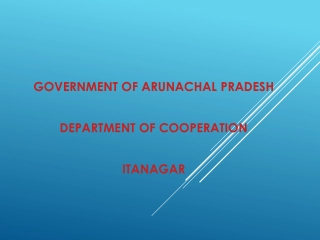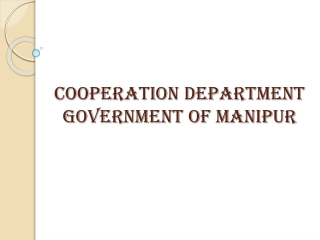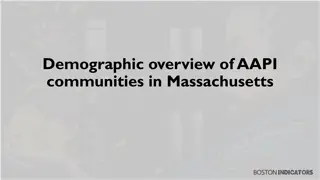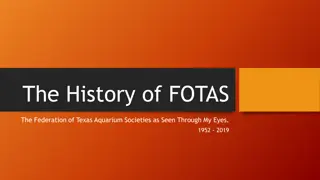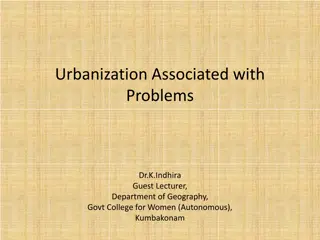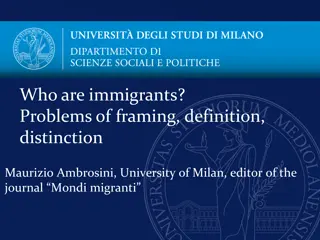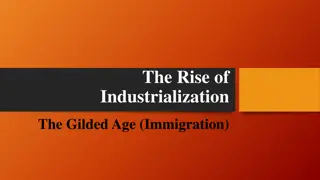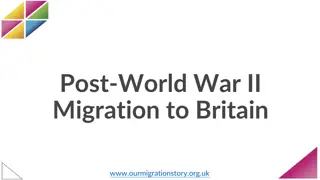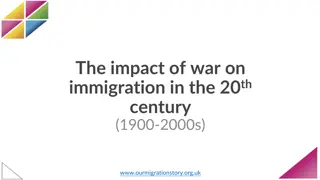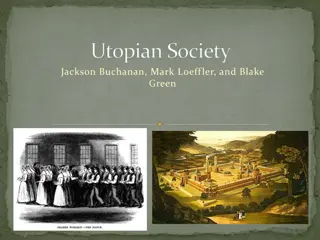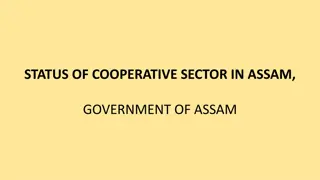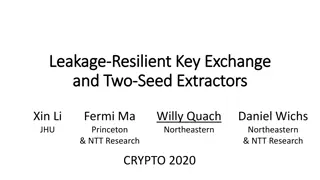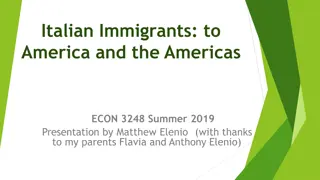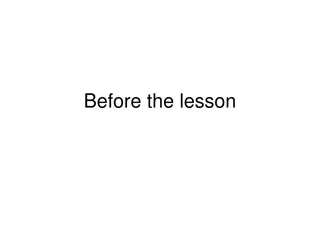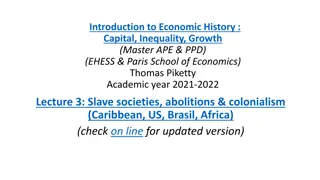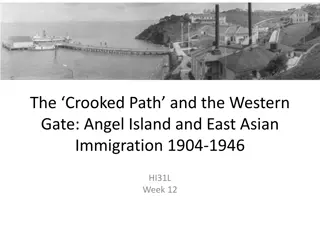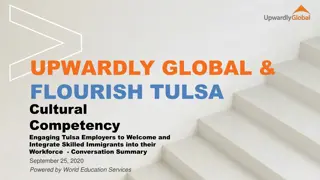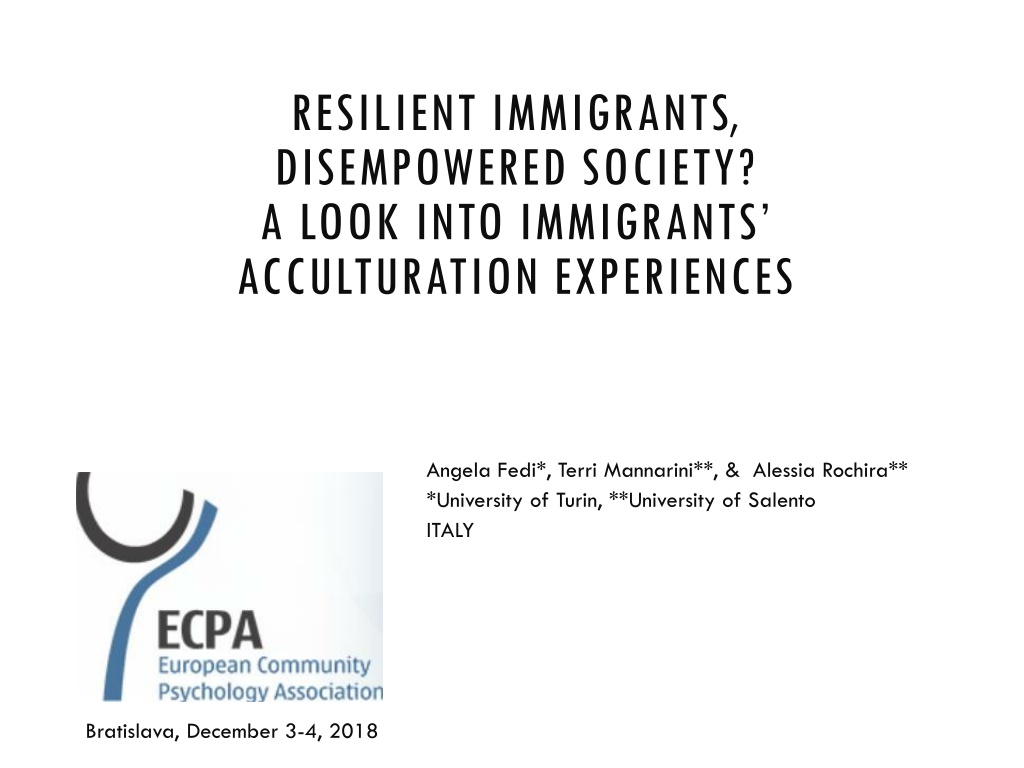
Immigrant Acculturation Experiences: Resilience and Empowerment Study
Explore the role of resilience and empowerment in the acculturation processes of Albanian and Moroccan immigrants in Italy. The study delves into the differing perceptions of risk and experiences faced by these immigrant groups, shedding light on their acculturation challenges and strengths.
Download Presentation

Please find below an Image/Link to download the presentation.
The content on the website is provided AS IS for your information and personal use only. It may not be sold, licensed, or shared on other websites without obtaining consent from the author. Download presentation by click this link. If you encounter any issues during the download, it is possible that the publisher has removed the file from their server.
E N D
Presentation Transcript
RESILIENT IMMIGRANTS, DISEMPOWERED SOCIETY? A LOOK INTO IMMIGRANTS ACCULTURATION EXPERIENCES Angela Fedi*, Terri Mannarini**, & Alessia Rochira** *University of Turin, **University of Salento ITALY Bratislava, December 3-4, 2018
Integration = soft assimilation [public assimilation and private separation] Acculturation as a unidirectional process: immigrants are charged to adapt to their new contexts The individual nature of the acculturative process: sociopolitical and collective factors (e.g., law, racism) in the shadows
THE CURRENT STUDY THEORETICAL MODEL: the Transconceptual Model of Empowerment and Resilience (TMER) (Brodsky & Cattaneo, 2013) AIMS: To explore the role played by resilience and empowerment in the acculturation processes of Albanian and Moroccan immigrants settled in Italy HYPOTHESES: (a) more resilience than empowerment in the immigrants experiences and actions; (b) 1stgeneration immigrants more prone to resilience, 2ndgeneration to empowerment INSTRUMENTS: qualitative individual interviews aimed to understand their prior international experience, immigration history, experiences with RCMs , attitudes, and acculturation actions
PARTICIPANTS Albanians - The largest of immigrant nationalities in Italy and also one of the most integrated, but for a long time one of the most stigmatized groups (King & Mai 2002). Moroccans - The second largest immigrant population in Italy, they are currently the most discriminated group in Europe (Eurobarometer, 2015). Distant from Italian society as for cultural, linguistic, and religious characteristics (Gattino et al., 2016; Giuliani & Tagliabue, 2015). Participants recruited through a snowball design, and contacted via local immigrants associations
ANALYSIS CODING FRAMEWORK BASED ON THE TMER MODEL
RESULTS DIFFERENCES BETWEEN GROUPS The notion of fundamental risk not merely an elevated chance that certain aspirations and desires might not be obtainable, but rather the heightened probability that basic needs, rights, and access to resources will be thwarted by circumstances beyond one s immediate control (Brodsky & Cattaneo, 2013) For Albanian immigrants (especially among 1stg.) the context of fundamental risk is their country of origin, characterized by poverty, women oppression, and political dictatorship Moroccan immigrants have a different perception of risk in the Italian receiving society: they fear that they are at risk of losing their identity, and of being severely discriminated because of their diversity, and especially their religion. People treat us like strangers just think what it is like for those who have just arrived. You speak Italian, you behave like them, you have the same aims, and even so you re still a stranger. I m scared to face this, also for my job. When I have an interview, I m scared to death: They see me wearing the veil what if they slam the door in my face? (2G, F) If I go back to Morocco with my sons who are not able to speak Moroccan, how can they communicate with their family? This is the mistake Moroccans make, a great mistake. They make their children learn Italian and no more the Moroccan dialect (1G, M)
RESULTS DIFFERENCES BETWEEN GROUPS Change in the receiving context: community closure vs. community openness Moroccan experiences: the economic crisis and social hardship have brought about an increase in ethnic prejudice Albanian experiences: the Italian population has become less parochial and more cosmopolitan, and therefore more willing to accept diversity
RESULTS SIMILARITIES ACROSS GROUPS More resilience than empowerment, both in 1stand 2ndg. immigrants: more individual adaptation than context change, more status quo than status quake, more reflection than action Resilience as a goal and as a reflection central in 1g. immigrants experience Discrimination substantially overlooked (infrequent and occurring in mild forms). Addressed through resilience strategies (internal focus), such as letting it roll off shoulders, or attributing it to ignorance of the person I don t react, I judge the person, I usually think it doesn t matter : that person didn t travel, has little learning, so I forgive him/her, because [ ] that person is not educated, is narrow-minded it s better not to engage in a quarrel (1G, F)
RESULTS SIMILARITIES ACROSS GROUPS Few signs of empowerment goals/actions, among 2ndg. immigrants I ve joined a group, I ve applied for a training to increase my knowledge, to know what our rights are, so maybe I will be able to influence other people (2G, M) The core concept in in the acculturative experiences: adaptation Both individual (language mastery, travelling experiences, cosmopolitan identity, self-confidence, self-determination) and social resources (social relationships in the host community and among compatriots) serve the aim of accommodation
SUMMARY Resilient immigrants, endowed with psychological and cultural resources that make them capable of integrating into the receiving context The more diverse the immigrant groups, the higher the risks faced in the receiving context The main pathway to integration is via resilience, internal focus, and adaptation - Only in few 2ndgeneration immigrants few signs of empowerment Overall lack of political consciousness that could eventually result in empowerment
DISCUSSION One-sided view of integration that weighs resilience over status quake change Different motivations for privileging resilience over empowerment Individualism, cultural closeness to the receiving context (Albanian experiences) Perceived risks, diversity (Moroccan experiences). This case fits the TMER model expectations: threats or fundamental risks call for resilience Resilience in low risk conditions: not an immigrant-specific pathway Effects: maintenance of an unjust status quo. Resilient immigrants = disempowered society?
References Brodsky, A. E., & Cattaneo, L. B. (2013). A transconceptual model of empowerment and resilience: Divergence, convergence and interactions in kindred community concepts. American Journal of Community Psychology, 52(3- 4), 333-346. Fedi, A., Mannarini, T., Brodsky, A., Rochira, A., Buckingham, S., Emery, L., ... & Gattino, S. (2018). Acculturation in the discourse of immigrants and receiving community members. Results from a cross-national qualitative study. American Journal of Orthopsychiatry, 1-41. Gattino, S., Miglietta, A., Rizzo, M, & Testa, S., (2016). Muslim Acculturation in a Catholic Country: Its associations with religious identity, beliefs, and practices. Journal of Cross-Cultural Psychology, 47, 1 7. Giuliani, C., & Tagliabue, S. (2015). Exploring identity in Muslim Moroccan and Pakistani immigrant women. Europe's Journal of Psychology, 11(1), 63. King, R., & Mai, N. (2002). Of myths and mirrors: interpretations of the Albanian migration to Italy. Studi Emigrazione, 39(145), 161-200.

